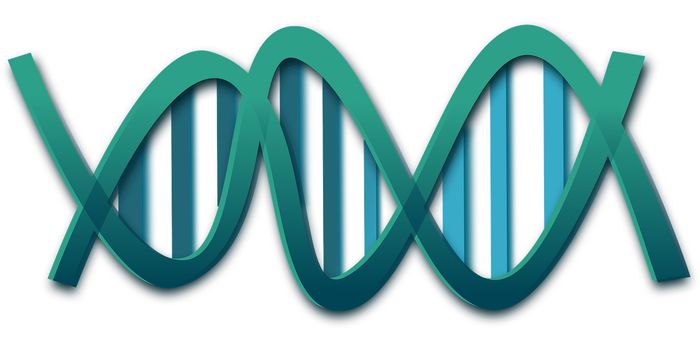Emerging Drug Targets in Cancer Immunotherapy
Introduction
Cancer is the second leading cause of death globally. According to estimates from the American Cancer Society, there will be 1.9 million new cancer cases and 609,360 deaths from cancer in the United States in 2022. Unlike traditional cancer treatments such as surgery, chemotherapy, and radiotherapy, immunotherapy harnesses the immune system to fight cancer cells, and it has emerged as the first-line therapy (standard treatment) for many solid tumors, including melanoma, lung cancer, head and neck cancer, and bladder cancer [1]. Inspired by the great success of PD-1/PD-L1 inhibitors, researchers in industry and academia are collaborating to identify other novel target molecules such as T-cell immunoreceptor with immunoglobulin and ITIM domains (TIGIT), CD47, and signal regulatory protein α (SIRPα) to maximize the efficacy of immunotherapy.
TIGIT
TIGIT is an attractive target for cancer immunotherapy because of its central role in limiting antitumor responses [2]. TIGIT, a member of the poliovirus receptor (PVR)/nectin family, has several ligands including CD155 (PVR), CD112, and CD113, which are also shared by other receptors including CD226 (DNAM-1), CD112R, and CD96 (TACTILE). Among these ligands, TIGIT has higher affinity for CD155 than for CD112 and CD113. TIGIT is expressed on activated T cells and NK cells, and it binds to CD155 on APCs and in various solid and hematologic tumors (Figure 1).
Figure 1. The TIGIT/CD226/CD96/CD112R axis
As presented in Table 1, a series of anti-TIGIT agents are under clinical development for cancer therapy. Tiragolumab, ociperlimab, and domvanalimab are in the most advanced stage of development (phase III). Tiragolumab is a fully human IgG1 monoclonal antibody designed to bind TIGIT and block its interaction with CD155. In a phase II study of first-line treatment for PD-1 high non-small-cell lung cancer (NSCLC), tiragolumab plus atezolizumab displayed significant clinical benefits regarding progression-free survival and overall survival versus atezolizumab alone [3]. The combination was granted Breakthrough Therapy Designation by the FDA in January 2021. Despite its phase III failure in May 2022, Roche has continued to examine tiragolumab in the treatment of NSCLC. Ociperlimab, a humanized IgG1 antibody, binds to TIGIT with high affinity and specificity. Ociperlimab plus tislelizumab is being compared to pembrolizumab alone in previously untreated patients with advanced NSCLC in a phase III trial (NCT04746924) [4]. Domvanalimab is an Fc-silent humanized IgG1 antibody with a lower risk of depleting intratumoral CD8+ effector T cells. As domvanalimab displayed promising efficacy, Arcus Biosciences has planned various phase III studies to further evaluate combination regimens across different cancer types.
Table 1. Anti-TIGIT agents under clinical development

To support the discovery and development of TIGIT-targeting therapeutic agents, Sino Biological provides high-quality TIGIT proteins from various species such as humans, cynomolgus monkeys, and rats (Figure 2). CD96, CD155, and CD226 proteins are also available to researchers who want to conduct in-depth studies of the TIGIT axis.

CD47–SIRPα
CD47 is broadly expressed in both hematological malignancies and solid tumors, whereas SIRPα is especially abundant in macrophages, dendritic cells, and neutrophils. When CD47 on tumor cells binds to SIRPα, it triggers a potent intracellular “don’t eat me” signal to immune effector cells, thereby inhibiting phagocytic cell activation and evading immune surveillance. Thus, blocking the CD47–SIRPα interaction is emerging as a promising therapeutic strategy to promote antitumor immunity (Figure 3).

A number of CD47/SIRPα inhibitors have been developed and evaluated in clinical trials, including anti-CD47 or SIRPα monoclonal antibodies, SIRPα–Fc fusion proteins, and bispecific antibodies (Table 2). However, no therapeutic agent that blocks the CD47–SIRPα signaling pathway has reached the market. Magrolimab, a humanized anti-CD47 IgG4 antibody, is currently in phase III development, and it could be the first such agent to gain approval. Because CD47 is expressed on red blood cells (RBCs), CD47-targeting agents induce the hemagglutination and phagocytosis of RBCs in vitro, indicating potential toxicity. In clinical trials of magrolimab, patients initially received a low priming mAb dose (1 mg/kg) to occupy the RBC sink and induce compensatory erythropoiesis, thereby facilitating tolerance of subsequent higher maintenance doses (30 mg/kg) [5]. In a phase Ib/II study evaluating patients with non-Hodgkin’s lymphoma (NHL), magrolimab plus rituximab produced overall and complete response rates of 49 and 21%, respectively [6].
Letaplimab, another CD47 mAb in phase III development, specifically blocks the CD47–SIRPα axis. In a phase I study of patients with advanced solid tumors and lymphomas, letaplimab exhibited a favorable toxicity profile without dose-limiting toxicities. Most of the treatment-related adverse events were grade 1–2 in severity, and the overall rate of anemia was 15%, with only one patient experiencing grade 3 anemia [7]. In addition to letaplimab, IBI322, also being developed by Innovent Biologics, is an anti-human CD47/PD-L1 bispecific antibody that can selectively bind CD47+PD-L1+ tumor cells, thereby reducing the potential side effects caused by CD47 blockade in healthy cells [8]. IBI322 is currently under phase I development to evaluate its safety, tolerability, and pharmacokinetics in patients with advanced solid tumors.
ALX148 and TTI-621 are SIRPα–Fc fusion proteins targeting CD47 engineered by fusing the CD47 binding domain of SIRPα to the Fc region of human IgG1. In preclinical studies, ALX148 demonstrated potent antitumor efficacy in murine models utilizing human tumor xenografts [9]. Similarly, TTI-621 effectively inhibited the growth of aggressive acute myeloid leukemia and B lymphoma xenografts [10]. Anti-SIRPα monoclonal antibodies such as GS-0189 and CC-95251 are in the early stage of clinical development.
Table 2. Select inhibitors of the CD47–SIRPα axis under clinical development

The IgV domain of SIRPα is highly polymorphic, and 10 allelic variants exist in humans. SIRPα V1, SIRPα V2, and SIRPα V8 have been reported as the most prevalent variants, accounting for more than 90% of all forms in the human population [11-12]. SIRPγ, closely related to SIRPα, binds to CD47 with weaker affinity than SIRPα, and it is involved in T-cell responses [13]. Assessing the binding to various SIRPα variants and SIRPγ is essential for developing therapeutic antibodies. Sino Biological has produced high-quality SIRPα V2, SIRPα V8, and SIRPγ proteins, and product data are presented in Figure 4. Human, mouse, and rat CD47 proteins are also available.

Conclusion
Cancer immunotherapy is a rapidly advancing field. In addition to the aforementioned targets, promising antitumor efficacy and good safety profiles have been observed for preclinical- and clinical-stage drugs [14-15] that act on other emerging targets, including TIM-3, VISTA, LAG-3, and CD27(Table 3). Because of the continued exploration of novel therapeutic targets or combination strategies, several truly effective new treatment strategies will be available to patients with cancer in the future.
Table 3. Summary of additional emerging immunotherapy targets
References
[1] doi: 10.3747/co.25.3840
[2] doi: 10.1111/cei.13407
[3] doi: 10.1007/s11912-022-01281-5
[4] doi: 10.1200/JCO.2021.39.15_suppl.TPS9128
[5] doi: 10.1200/JCO.2022.40.16_suppl.7054
[6] doi: 10.1186/s13045-021-01197-w
[7] doi: 10.3390/cancers13246229
[8] doi: 10.1007/s00432-020-03404-6
[9] doi: 10.1371/journal.pone.0201832
[10] doi: 10.1158/1078-0432.CCR-16-1700
[11] doi: 10.1172/jci.insight.134728
[12] doi: 10.1186/s40364-022-00373-5
[13] doi: 10.1186/s40425-019-0772-0
[14] doi: 10.1016/j.semcancer.2017.10.001
[15] doi: 10.2217/imt.15.78










